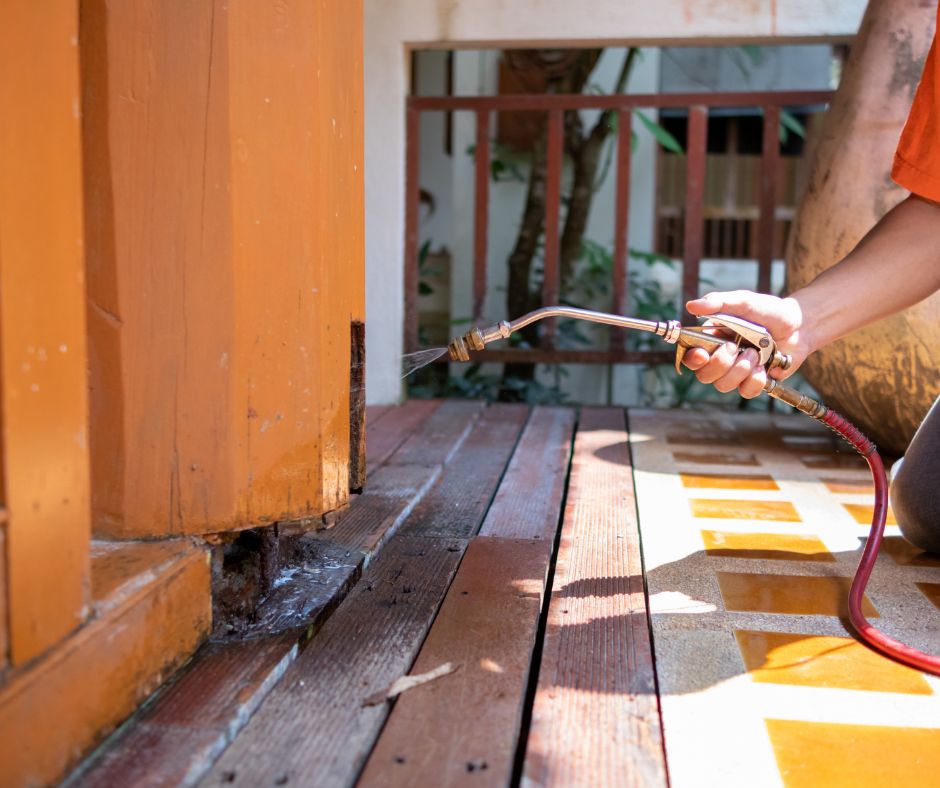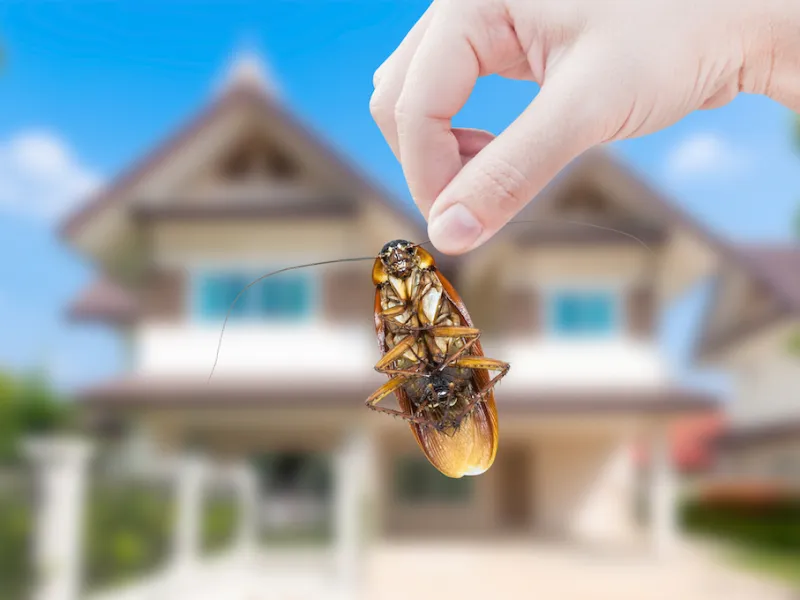Main Benefits of Termite Treatment Port Charlotte for Preventative Protection
Discover the Significance of Insect Control in Preserving a Healthy And Balanced Environment and Treatment Strategies

The Role of Bugs in Environments
Pests, often watched only as annoyances, play a multifaceted role in communities that is essential for keeping environmental balance. They add considerably to various eco-friendly procedures, consisting of pollination, nutrition cycling, and pest control. Numerous insect varieties, such as and butterflies, are important pollinators for a large range of plants, which in turn supports biodiversity and food production.
Additionally, pests function as prey for various predators, developing an essential link in food webs. This connection makes certain the survival of numerous varieties and aids regulate populations within ecosystems (Termite treatment Port Charlotte). Decomposer bugs, such as certain beetles and fungi, are instrumental in damaging down natural matter, hence enriching dirt and assisting in nutrient recycling.
On the other hand, while insects can be beneficial, their overpopulation or invasion into non-native atmospheres may interrupt these ecological features. This intricacy underscores the significance of understanding parasite dynamics, as efficient parasite administration approaches have to take into consideration both their eco-friendly duties and prospective effect on human activities. Stabilizing pest existence while minimizing harm is necessary for maintaining the integrity of ecological communities and ensuring farming performance.
Wellness Risks Connected With Pests
The visibility of parasites in different environments prolongs beyond their ecological roles, as they likewise posture significant health threats to animals and people. Lots of bugs, including insects, parasites, and rats, are carriers of conditions that can have serious health ramifications. For instance, rodents are recognized to transmit hantavirus and leptospirosis, both of which can lead to severe respiratory and kidney issues, specifically.
Insects such as insects and ticks are notorious for spreading out vector-borne diseases like malaria, dengue high temperature, and Lyme disease. These health problems can result in high morbidity and mortality prices, especially in prone populations. Additionally, bugs like vermins and cockroaches can aggravate allergic reactions and asthma, adding to respiratory issues in individuals, especially those with pre-existing conditions.
Furthermore, the presence of insects can lead to psychological anxiety and pain, influencing total health. Contamination of food and surfaces by insect droppings and continues to be can lead to foodborne health problems, highlighting the significance of maintaining sanitary problems. Understanding the wellness risks connected with insects is critical in acknowledging the requirement of efficient bug monitoring approaches to secure animal and human health and wellness.

Benefits of Efficient Pest Control
Reliable insect control is important for preserving a healthy and balanced and risk-free setting, as it constantly mitigates the numerous threats related to parasite invasions. One of the primary benefits of efficient insect administration is the decrease of wellness hazards. Bugs such as roaches, insects, and rats are vectors for diseases that can impact both animals and human beings. By regulating these populations, the probability of condition transmission is significantly reduced.
Additionally, reliable pest control safeguards residential property and frameworks from damage. Lots of insects, like termites and carpenter ants, can trigger considerable structural damage that might call for pricey repair services. By proactively managing these services, infestations and homeowners can secure their financial investments.
Another considerable benefit is the enhancement of overall top quality of life. A pest-free setting adds to psychological well-being and minimizes anxiety connected with invasions. Effective pest control cultivates pest management company a more secure setting for pets and kids, making sure that homes stay sanctuaries free from unsafe chemicals and disease-causing microorganisms.
Common Bug Control Strategies

In the world of bug administration, different strategies are used to combat problems efficiently. These techniques can be generally classified right into 3 primary approaches: cultural, mechanical, and chemical controls.
Social control involves modifying techniques to reduce insect reproduction, facility, and survival. This might include crop rotation, proper cleanliness, and environment manipulation, which jointly develop a setting much less for pest expansion.
Mechanical control employs physical techniques to remove pests (Termite treatment Port Charlotte). Strategies such as catches, vacuum cleaners, and barriers are generally made use of to directly eliminate pests from a location. This strategy is specifically efficient for handling rodents and bugs without using harmful chemicals
Chemical control involves getting rid of rats the application of chemicals to manage bugs. These materials can be categorized into fungicides, herbicides, and pesticides, each targeting particular types of pests. It is essential to make use of these chemicals judiciously, adhering to security standards and policies to reduce potential injury to non-target varieties and the setting.
Each parasite control method has its advantages and restrictions, and frequently, an incorporated method incorporating several methods produces the best outcomes in keeping a pest-free atmosphere.
Sustainable Insect Monitoring Practices
Lasting bug management techniques encompass a variety of techniques designed to decrease environmental impact while efficiently controlling insect populaces. These practices prioritize the use of eco-friendly techniques over chemical pesticides, consequently decreasing the threat of injury to non-target varieties, including advantageous pests, wildlife, and humans.
Integrated Pest Management (IPM) is a keystone of sustainable techniques, incorporating organic, social, mechanical, and chemical methods to take care of insects. For example, organic control involves presenting natural predators or parasites to suppress parasite populations. Cultural methods, such as crop turning and polyculture, interfere with pest life process and improve community durability.
Mechanical approaches, such as barriers or traps, can successfully avoid pest gain access to without chemical treatment. Furthermore, maintaining healthy and balanced ecological communities through proper soil administration, plant health and wellness, and biodiversity can naturally alleviate pest problems.
Education and recognition are essential components, empowering areas and people to identify insect risks early and execute safety nets. Termite top article treatment Port Charlotte. By cultivating an all natural technique that stabilizes bug control with eco-friendly stability, sustainable bug administration practices not only protect frameworks and crops but also add to a much healthier atmosphere for future generations
Verdict

Comprehending the health threats linked with bugs is critical in acknowledging the requirement of effective parasite monitoring techniques to protect animal and human wellness.
Effective pest control is crucial for preserving a healthy and risk-free environment, as it consistently reduces the various threats connected with bug infestations.Integrated Parasite Management (IPM) is a keystone of sustainable techniques, combining biological, cultural, mechanical, and chemical techniques to take care of parasites. By understanding the role of parasites, identifying connected health and wellness dangers, and using diverse therapy strategies, a sustainable technique to pest management can be attained. Integrated Parasite Monitoring (IPM) stresses an all natural method that reduces harm to beneficial microorganisms while effectively controlling bug populaces.